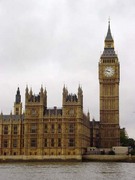 Sir Thomas Legg’s statement is yet to be published, but I’ve trawled through the internet and made some calls to discover its contents. It is plain that Sir Thomas has imposed rules retrospectively. His remit was to enforce the ‘rules and standards in force at the time’. The Green Book, however badly written, should have been his sole source of reference; instead he cites the ‘fundamental principles of propriety’, defined by him, as criteria for passing judgement.
Sir Thomas Legg’s statement is yet to be published, but I’ve trawled through the internet and made some calls to discover its contents. It is plain that Sir Thomas has imposed rules retrospectively. His remit was to enforce the ‘rules and standards in force at the time’. The Green Book, however badly written, should have been his sole source of reference; instead he cites the ‘fundamental principles of propriety’, defined by him, as criteria for passing judgement.
His reason for doing so is obvious: these claims were outrageous. But that is a moral judgement, not a legal argument to enforce repayment. He states that the Commons Fees Office allowed ‘disproportionate claims that must be judged to have been in breach of the rules’. The problem is that they were within the rules and a barrister has told me that there is little chance of a court finding against an MP resisting repayment in consequence. The political arguments for forcing MPs to repay expenses are unanswerable, and the manoeuvring of the front benches today has been fascinating. But unless criminality can be proved, there is no legal imperative to repay, and MPs have a right to resist that unjust imposition; this will be a particular problem if and when substantial mortage claims are examined. It would be an absolute disaster if this opportunity for Parliamentary reform was wasted, as sitting MPs fought court actions to avoid repaying expenses. However, hopefully MPs will see moral sense and repay of their own volition.






Comments